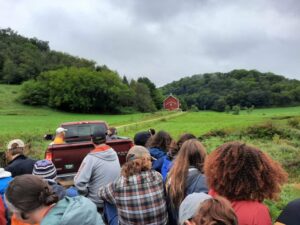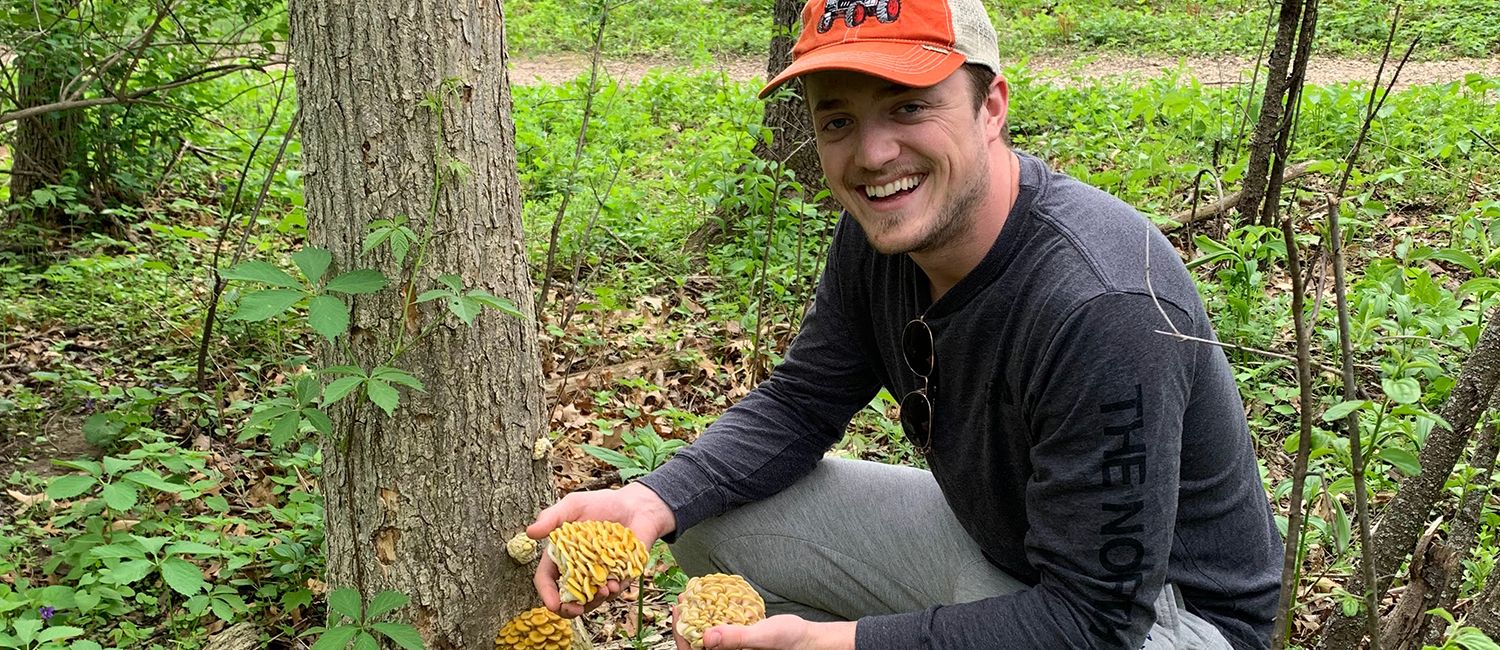Micah Robinson is an undergraduate from Madison, Wis., who is majoring in Biological Systems Engineering, Natural Resources and Environmental Engineering track, at UW-Madison. When he graduates in spring 2023, Robinson hopes to work in the public sector as an environmental engineer.
In September 2022, he was one of 21 students who participated in a pilot regional field trip, “Exploring the Ag-Water Nexus in Wisconsin.” The three-day field experience provided students with an overview of how water and agriculture intersect in different regions of the state.
Here’s what Robinson said about his experience.
Why did you choose to participate in this field trip course?
I really enjoyed taking two of Dr. Anita Thompson’s classes (Small Watershed Engineering, Water Management Systems), and I was eager to supplement my theoretical/academic knowledge with real-world experiences. I also thought this trip would be a good opportunity to network and explore career opportunities.
What did you learn? Was there anything that surprised you or was particularly interesting?
I learned about how regional geologic features and agricultural practices create unique water quality issues across Wisconsin. One thing that surprised me was learning about Karst landscapes, which we saw near Green Bay. These landscapes can produce sinkholes and fissures that quickly drain surface water, potentially contaminating underground aquifers. I had no idea this was an issue in Wisconsin, and it was really interesting getting to see examples of Karst formations.
What were the benefits to seeing various regions of Wisconsin?
Wisconsin has very different water quality issues depending on the specific region. Getting to see various regions gave me a broader understanding of water quality issues in the state and better prepared me to solve unique water quality issues.
Was there a benefit to meeting and interacting with faculty and students from other UW schools?
Yes, I really enjoyed meeting the faculty and students from other campuses. It was beneficial having a diverse group of people who each brought their own unique knowledge and experiences with them. I particularly enjoyed learning about the research that faculty at other campuses were working on. I probably would not have been exposed to their research if not for this trip.
What was your favorite part of the field trip?
My favorite part of the trip was visiting Cates Family Farm, where they had successfully completed a restoration of their trout stream. It was inspiring to see their dedication to sustainable food production and their passion for restoring their land.
How will taking this course help you attain your career goals?
Meeting all the faculty from various campuses, as well as the professionals who spoke at our stops, provided insight into potential careers. Learning about interesting research in the fields of water quality and sustainable agriculture sparked my interest in graduate school, which I am now considering as an option for next fall.
The “Exploring the Ag-Water Nexus in Wisconsin” field experience was developed by the Wisconsin Agriculture-Water Nexus Network, using funding from the Freshwater Collaborative of Wisconsin. The pilot was offered through UW-Green Bay, UW-Madison, UW-Platteville and UW-Stevens Point. Faculty are now developing multiple one-credit hybrid courses that each focus on a different area of the state, which will be offered in spring 2023 at UW-Green Bay, UW-Madison, UW-Platteville, UW-River Falls, UW-Stevens Point, UW-Stout. View course descriptions.
Read more about the Wisconsin Agriculture-Water Nexus Network

